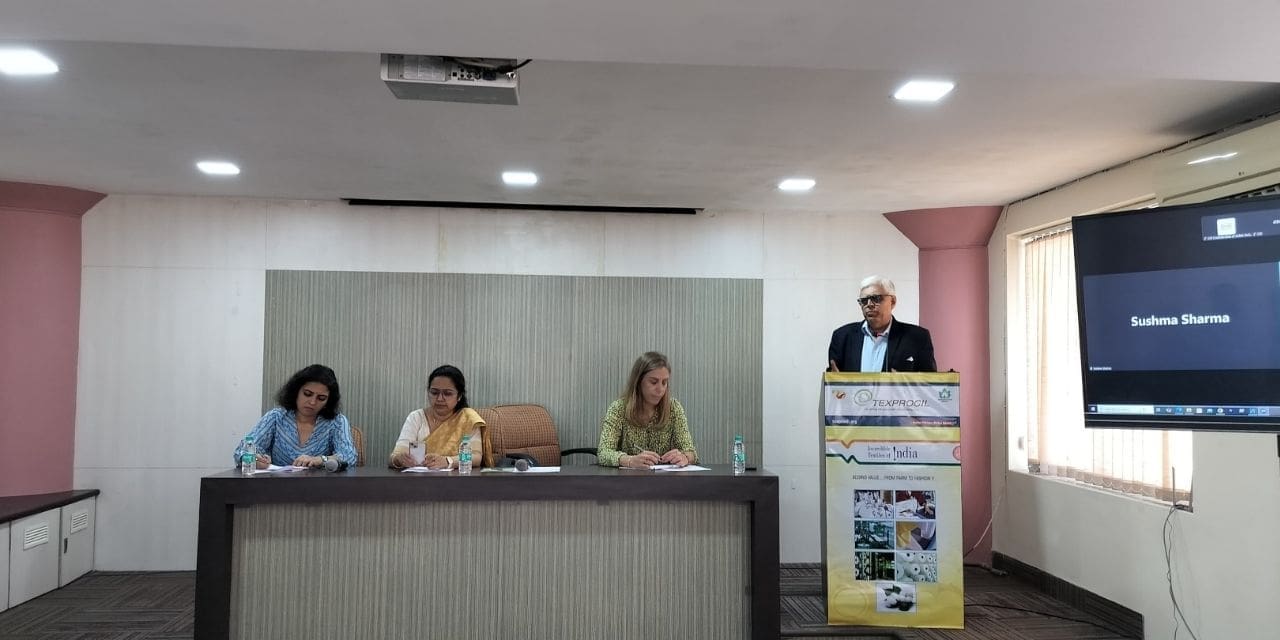New Delhi – In a ground-breaking move, the Fair Wear Foundation and the Confederation of Indian Textile Industry (CITI) have partnered to introduce a program that will give Indian textile exporters the necessary resources to comply with the EU’s recently implemented Corporate Sustainability Due Diligence Directive (CSDDD). Introduced in May 2024, this historic rule represents a substantial departure from trade compliance by requiring thorough environmental and human rights due diligence throughout global supply chains.
CITI recently held its third session, “Advancing Sustainable and Responsible Business Practices: HRDD, CSDDD, and Chemical Compliance,” in Mumbai as a part of this ambitious collaboration. In addition to showcasing well-known industry professionals, the event offered customized advice on how Indian exporters may turn compliance issues into competitive advantages.
Ms. Chandrima Chatterjee, the Secretary General of CITI, highlighted in her introductory remarks how the CSDDD will revolutionize the Indian textile industry. “The CSDDD is a significant shift that emphasizes the necessity of conforming to international sustainability standards,” she said. “Deeper integration with international frameworks is essential to maintain our competitive edge in the global market, even though India has strong labor and environmental regulations.”
This view was supported by Dr. Siddhartha Rajagopal, Executive Director of TEXPROCIL, who talked about the industry’s transition from optional sustainability measures to required compliance as crucial for accessing international markets. Through proactive adaptation, he demonstrated how new global rules, such as emerging carbon price requirements and good governance norms, may establish Indian textile exporters as leaders in responsible trade.
The Fair Wear Foundation’s Country Manager for India, Ms. Mousumi Sarangi, gave a brief presentation that was a highlight of the workshop. She gave attendees practical techniques that combine profitability and shared accountability, emphasizing the value of proactive due diligence over merely complying with regulations. She said, “This change encourages Indian companies to take the lead in improving working conditions.”
Ms. Annabel Meurs, Associate Director of the Fair Wear Foundation in the Netherlands, also shared her thoughts during the session and gave a thorough explanation of the CSDDD’s specifications. She underlined the necessity of industry cooperation to safeguard suppliers’ interests in the face of growing compliance complexity. This reaffirmed the workshop’s main takeaway, which was that strengthening trade partnerships and attaining sustainable growth require teamwork.
Furthermore, Ms. Drashti Patel, Global Product Compliance’s Regulatory Manager, talked about how important chemical compliance is to maintain environmental purity. She offered a road plan for developing authenticity in sustainability initiatives while addressing the issue of greenwashing and advocating for transparency and science-based standards.

